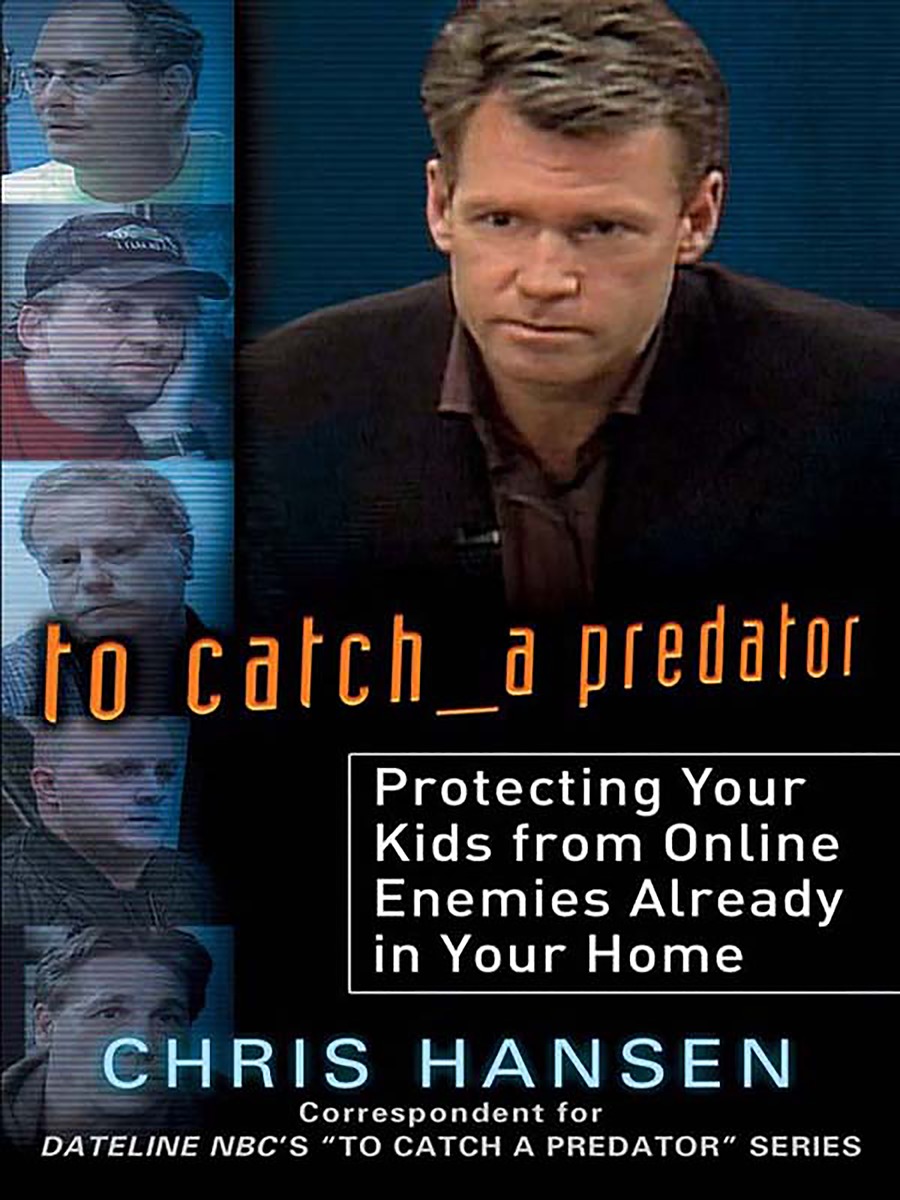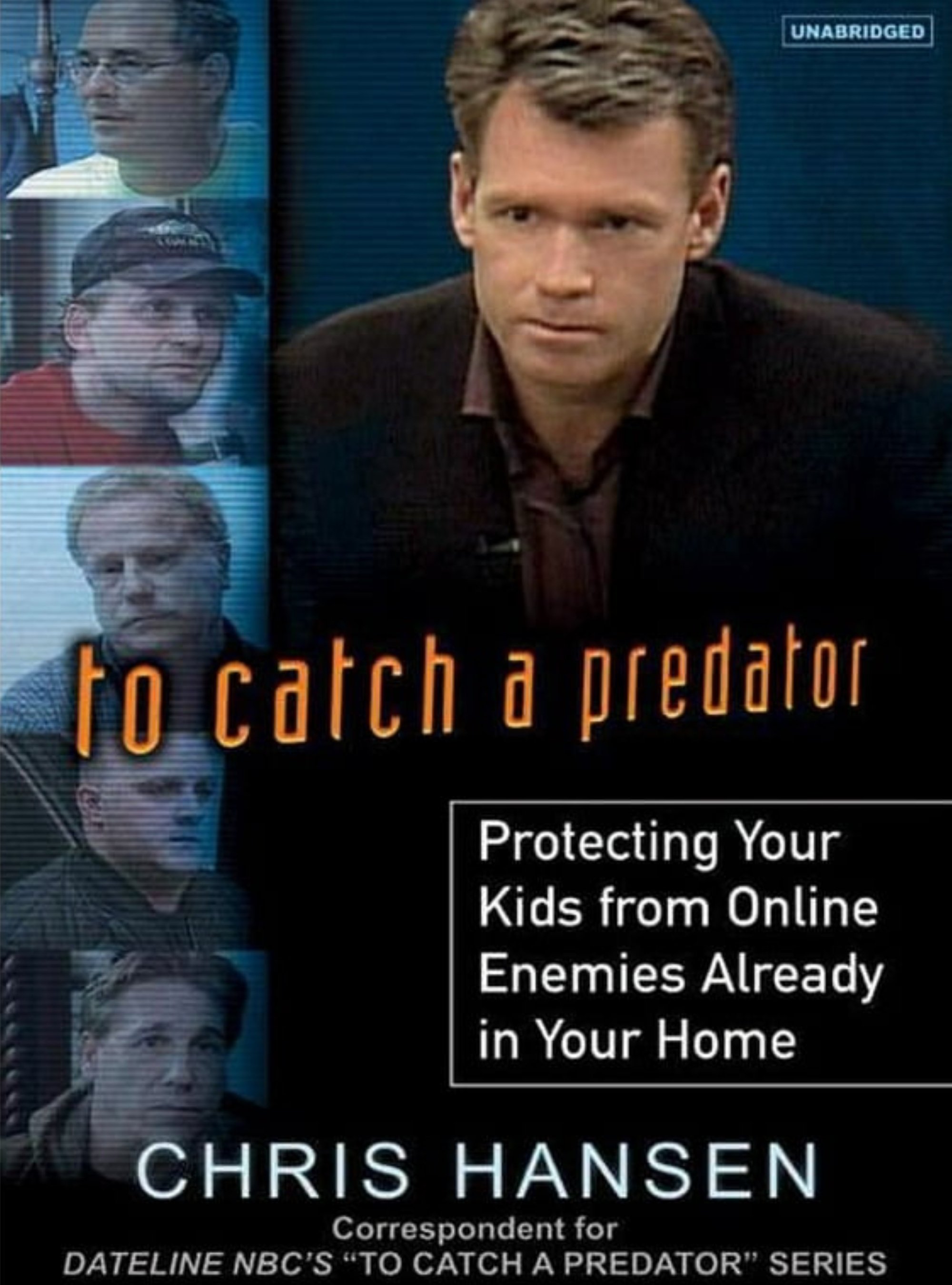Is it possible to turn the exposure of alleged predators into a form of entertainment? Dateline NBC's "To Catch a Predator" undeniably walked a tightrope between public service and sensationalism, forever changing the landscape of true crime television. The show, spearheaded by Chris Hansen, not only captured the attention of millions but also ignited a fiery debate about its ethical implications and lasting impact.
The premise was simple, yet chilling: using decoys posing as minors online, law enforcement and the Dateline crew would lure suspected predators into a staged house, culminating in a dramatic confrontation with Hansen. The formula proved to be a ratings goldmine, drawing in an average of 11 million viewers per episode and captivating over 40 million Americans throughout its run. The show became a cultural phenomenon, sparking countless parodies and water cooler conversations. But beneath the surface of high ratings and viral moments, "To Catch a Predator" raised uncomfortable questions about justice, privacy, and the role of media in combating crime.
| Category | Information |
|---|---|
| Show Title | To Catch a Predator |
| Network | Dateline NBC |
| Host | Chris Hansen |
| Premise | Undercover sting operations targeting suspected online child predators. |
| Years Active | 2004-2007 (Initial Run), Revivals in later years |
| Notable Features | Confrontational interviews with Chris Hansen, use of decoy children, involvement of local law enforcement. |
| Controversies | Ethical concerns regarding entrapment, privacy rights of suspects, and the impact on individuals acquitted or whose charges were dropped. |
| Legacy | Sparked national conversations about online safety, child protection, and the role of media in law enforcement. Inspired similar programs and documentaries. |
| Related Shows | Predator Raw: The Unseen Tapes, Hansen vs. Predator, Takedown with Chris Hansen |
| Further Information | Dateline NBC Official Website |
The show's format was undeniably compelling. Viewers were drawn in by the suspense of the sting operations, the shock of the confrontations, and the perceived justice of seeing alleged predators brought to light. The drama was heightened by Hansen's signature catchphrases and the often-bizarre behavior of those caught in the act. The program became a vehicle for public shaming, with many of those featured facing not only legal repercussions but also immense social stigma. The shows impact resonated far beyond the television screen, prompting conversations about online safety and the dangers lurking in the digital world. The speed and anonymity afforded by the internet made it easier for predators to connect with potential victims, and To Catch a Predator brought this harsh reality into the living rooms of millions. Hansen became a symbol of vigilance, a modern-day crusader against a hidden threat.
- Stephen A Smith Scandals Controversies More Exposed
- Goodfellas Why Jimmy Conway Avoided Tommys Fate Explained
However, the show also faced significant criticism. Some legal experts argued that the methods used by "To Catch a Predator" bordered on entrapment, questioning whether the suspects would have committed the alleged crimes without the encouragement of the decoys. Concerns were also raised about the privacy rights of those featured, particularly those who were ultimately acquitted or had their charges dropped. Critics argued that the show created a climate of public judgment, potentially ruining lives based on accusations rather than convictions. This concern is validated by the fact that the news station, in addition to the original series, aired episodes of "Predator Raw: The Unseen Tapes," which further exploited the encounters with behind-the-scenes footage, adding another layer to the scrutiny of the individuals involved.
The shows formula often involved hiring "decoys" who posed as minors online, engaging in conversations with adult men and luring them to a predetermined location. These decoys would convince the adults that they were meeting a minor for sexual purposes, creating a scenario that was explicitly designed to catch them in the act. Critics of the show argued that this method was manipulative and could lead to false accusations, as the decoys were actively encouraging the suspects to engage in illegal behavior. The question of whether the show served as a public service or simply as a form of sensationalist television drama was hotly debated. Some argued that the show raised awareness about the dangers of online predators and helped to protect children, while others contended that it was an exploitative and unethical form of entertainment.
Adding to the complexity of the situation, some individuals featured on the show were acquitted of the charges related to attempting to meet minors for sex, or had their charges ultimately dropped. This raised further questions about the fairness of the show's methods and the potential for innocent people to be caught in the crossfire. The long-term consequences for those featured on the show were often devastating, regardless of the legal outcome. Many faced social ostracization, job loss, and even suicide. The show's legacy is therefore a complicated one, marked by both positive and negative impacts. It undoubtedly raised awareness about the dangers of online predators, but it also raised serious questions about the ethics of using deceptive tactics to catch them.
- Chlo Matt Tiktok Viral Pranks House Tours More
- Bambi Woods The Untold Story Of Debbie Does Dallas Star
The shows host, Chris Hansen, became a household name as a result of "To Catch a Predator." He was the face of the operation, the one who confronted the suspects and delivered the infamous line, "Why don't you have a seat right over there?" Hansen's role in the show was both praised and criticized. Some saw him as a hero, a fearless journalist who was willing to go to any lengths to protect children. Others viewed him as an opportunist who was exploiting the suffering of others for personal gain. Hansen himself has defended the show's methods, arguing that they were necessary to protect children from harm. He has also acknowledged the ethical complexities of the show and has expressed sympathy for those who were wrongly accused.
The show's impact on the legal landscape is also noteworthy. "To Catch a Predator" sparked numerous legal battles, as those featured on the show sought to challenge the charges against them. Some argued that the show's methods violated their constitutional rights, including their right to privacy and their right to due process. While some of these challenges were successful, others were not. The show's legacy continues to be debated in legal circles, with some arguing that it set a dangerous precedent for the use of deceptive tactics by law enforcement. The legal backlash was significant, raising fundamental questions about the balance between law enforcement and individual rights.
The show's enduring popularity has led to numerous spin-offs and related projects. The news station also aired episodes of "Predator Raw: The Unseen Tapes," which featured Hansen reflecting on the encounters and providing behind-the-scenes insights. The show also spawned other similar programs, such as "Hansen vs. Predator" and "Takedown with Chris Hansen." These programs sought to replicate the success of "To Catch a Predator" by using similar methods to catch alleged predators. However, they also faced similar criticisms, with some arguing that they were simply capitalizing on the public's fascination with true crime.
The enduring legacy of "To Catch a Predator" is now being examined in a new documentary titled "Predators," which premiered at the Sundance Film Festival. The documentary, the result of an investigation into the impact of "To Catch a Predator," promises to delve deeper into the ethical and social implications of the show. The film, which screens as part of the 2025 Sundance Film Festivals U.S. Documentary competition, focuses on the television program and its lasting effects. The documentary features Hansen watching clips of "To Catch a Predator" through a projector, parsing their overall impact in the present day. This reflective approach aims to provide a balanced perspective on the show's complexities.
The documentary, like "To Catch a Predator" itself, stealthily lures viewers in, offering a nostalgic trip down memory lane while simultaneously prompting critical reflection. The first act of the documentary digs into the making of "To Catch a Predator," including contemporary interviews with actors who played decoys. This behind-the-scenes look provides valuable insight into the production process and the motivations of those involved. Its essentially "To Catch a Predator" but with a greater degree of freedom to explore the nuances of the situation, allowing for a more in-depth examination of the ethical dilemmas.
Adding to the show's complexity, Chris Hansen is still catching predators all these years later. The man behind Dateline NBCs To Catch a Predator sat down to talk about the shows legacy. Hansen discussed how the idea evolved and the challenges he faced along the way. This continued involvement speaks to the enduring relevance of the issue and the ongoing need for vigilance in the fight against online predators.
The debate over whether "To Catch a Predator" was a public service or a TV drama continues to this day. The show sparked a national conversation about online safety and the dangers lurking in the digital world. It exposed predators, sparked debate, and faced legal backlash. The question remains: did the ends justify the means? Unpacking this question requires a careful examination of the show's methods, its impact on those involved, and its lasting legacy on society.
Ultimately, "To Catch a Predator" remains a controversial and polarizing program. It is a reminder of the dangers that lurk online and the importance of protecting children from harm. But it is also a cautionary tale about the ethics of using deceptive tactics to catch alleged criminals and the potential for innocent people to be caught in the crossfire. The show's legacy is complex and multifaceted, and it continues to be debated and analyzed to this day. The documentary "Predators" promises to add another layer to this ongoing conversation, offering a fresh perspective on a show that changed the landscape of true crime television forever.


